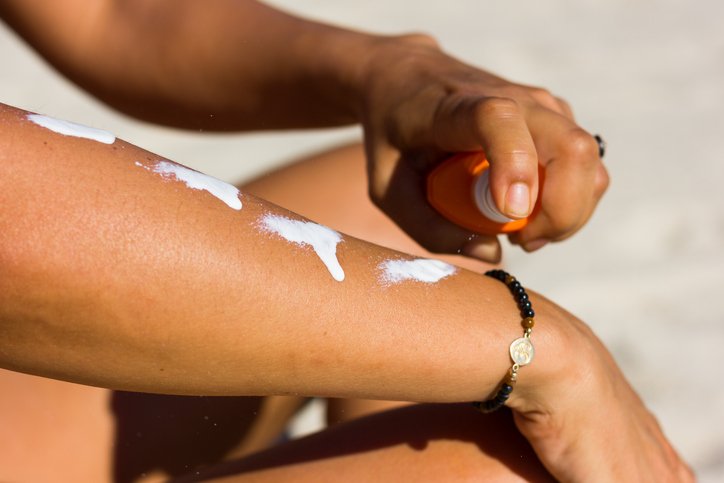The Importance of Sun Protection: How to Keep Your Skin Healthy Year-Round
When we think about sun protection, we often associate it with the summer months, days spent at the beach, or vacations in sunny destinations. However, sun protection is a crucial part of skincare year-round, regardless of the season or weather conditions.
The sun's ultraviolet (UV) rays are present every day, even on overcast or winter days, and prolonged exposure can lead to various skin problems—some of which may be irreversible.
This article will explore the importance of sun protection, the risks associated with sun exposure, and practical tips to protect your skin throughout the year.
Why Sun Protection is Essential
The sun emits two main types of UV rays that can affect the skin: UVA and UVB. While both can cause damage, they affect the skin in different ways.
UVA Rays: These rays penetrate the skin more deeply and are responsible for skin ageing. They can contribute to wrinkles, sagging, and sun spots. UVA rays also play a role in the development of skin cancer.
UVB Rays: These rays are primarily responsible for sunburn. They affect the outermost layers of the skin and can cause DNA damage that may lead to skin cancer.
Both types of rays are present throughout the year, even during the colder months when you may not be as mindful of sun exposure. The UV radiation can be reflected off surfaces like snow, water, and sand, so your skin is still vulnerable to sun damage, even in cooler weather or cloudy days.
The Long-Term Effects of Sun Exposure
Repeated exposure to the sun without proper protection can lead to both immediate and long-term damage:
Sunburn: The most immediate effect of unprotected sun exposure is sunburn, when the skin becomes inflamed due to excessive UVB radiation. Sunburn can cause pain, redness, and peeling, and repeated sunburns can increase the risk of skin cancer.
Premature Skin Aging (Photoaging): UVA rays cause the skin to lose its elasticity, leading to the development of wrinkles, fine lines, and sagging. Over time, unprotected sun exposure can significantly accelerate the ageing process, making the skin appear older than its actual age.
Skin Cancer: Skin cancer is one of the most common forms of cancer, and it's primarily caused by UV radiation. While the risk of skin cancer can be minimised with proper sun protection, long-term exposure to the sun increases the likelihood of developing melanoma, basal cell carcinoma, and squamous cell carcinoma.
Hyperpigmentation and Sun Spots: Prolonged sun exposure can lead to an uneven skin tone, sun spots, and other forms of pigmentation, especially in individuals with lighter skin tones. These spots are often more prominent as we age.
How to Protect Your Skin Year-Round
While sun protection may be a part of your routine in the summer, it's equally important to protect your skin in the colder months. Here are several key strategies to keep your skin safe year-round:
1. Wear Broad-Spectrum Sunscreen Daily
Applying a broad-spectrum sunscreen is the most effective way to protect your skin from harmful UV radiation.
Sunscreens that protect against UVA and UVB rays help shield your skin from the long-term effects of sun exposure.
Choose a sunscreen with at least SPF 30, which blocks 97% of UVB rays. For prolonged outdoor exposure, consider opting for a higher SPF.
Application Tips:
Apply sunscreen 15-30 minutes before going outdoors to allow the product to absorb.
Use about one ounce (a shot glass full) to cover your entire body.
Reapply sunscreen frequently every two hours or more if you're swimming or sweating.
2. Choose Sunscreen Formulations for Your Skin Type
Many sunscreen formulations are available, including lotions, sprays, gels, and sticks. When selecting a sunscreen, choose one that suits your skin type:
Oily or Acne-Prone Skin: Opt for oil-free, non-comedogenic sunscreens to prevent clogged pores and breakouts.
Dry Skin: Choose a sunscreen with added moisturising ingredients like hyaluronic acid or glycerin.
Sensitive Skin: Look for mineral sunscreens with zinc oxide or titanium dioxide, which are gentle and less likely to irritate the skin.
3. Seek Shade and Avoid Peak Sun Hours
Even with sunscreen, it's best to minimise your exposure to the sun, especially during peak hours when UV radiation is strongest. The sun's rays are typically the most intense between 10 a.m. and 4 p.m.
Try to limit your time outdoors during these hours. When outside, seek shade under an umbrella, tree, or protective cover.
4. Wear Protective Clothing
Covering up with protective clothing is another effective way to shield your skin from the sun. Look for clothing with built-in UV protection or wear tightly woven fabrics that block UV rays. Consider wearing:
Hats with wide brims (at least 3 inches) to protect your face, neck, and ears.
Sunglasses with UV protection to protect your eyes from sun damage, which can contribute to conditions like cataracts.
UPF Clothing: Specially designed clothing with an ultraviolet protection factor (UPF) rating can provide extra protection outdoors.
5. Stay Hydrated and Nourish Your Skin
Keeping your skin hydrated is crucial for maintaining its health and resilience against environmental stressors like the sun. Drink plenty of water throughout the day to stay hydrated, and consider using a moisturiser to lock in hydration.
Moisturising can also help prevent dry skin, which can become more sensitive to the sun.
Incorporating antioxidant-rich foods like fruits and vegetables into your diet can also help support skin health. Vitamin C, E, and beta-carotene are known for their skin-protective properties.
6. Get Regular Skin Checkups
Aside from daily sun protection, you must stay on top of your skin's health by performing regular self-exams for suspicious moles or spots. If you notice any changes, such as new growths, changes in shape or colour, or irritation, consult a dermatologist promptly. Early detection is key in preventing severe conditions like melanoma.
Conclusion
Sun protection is not just a seasonal concern—it's a year-round necessity for maintaining healthy skin. By understanding the risks of UV exposure and adopting habits like applying sunscreen daily, wearing protective clothing, and seeking shade during peak sun hours, you can significantly reduce the risks of sunburn, premature ageing, and skin cancer.
Healthy, youthful skin starts with proper sun protection, so make it a daily priority to ensure your skin remains safe, radiant, and healthy for years.








